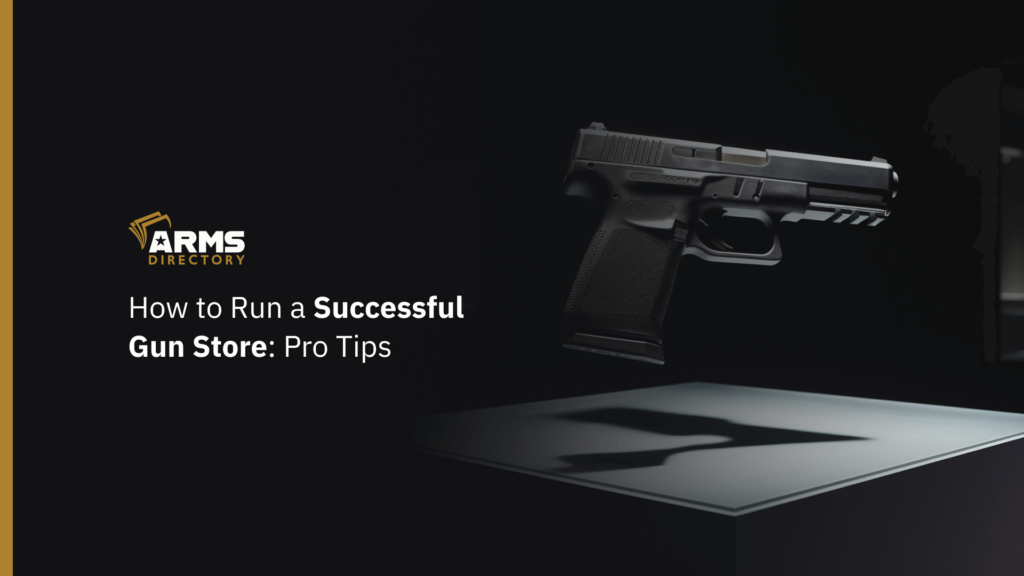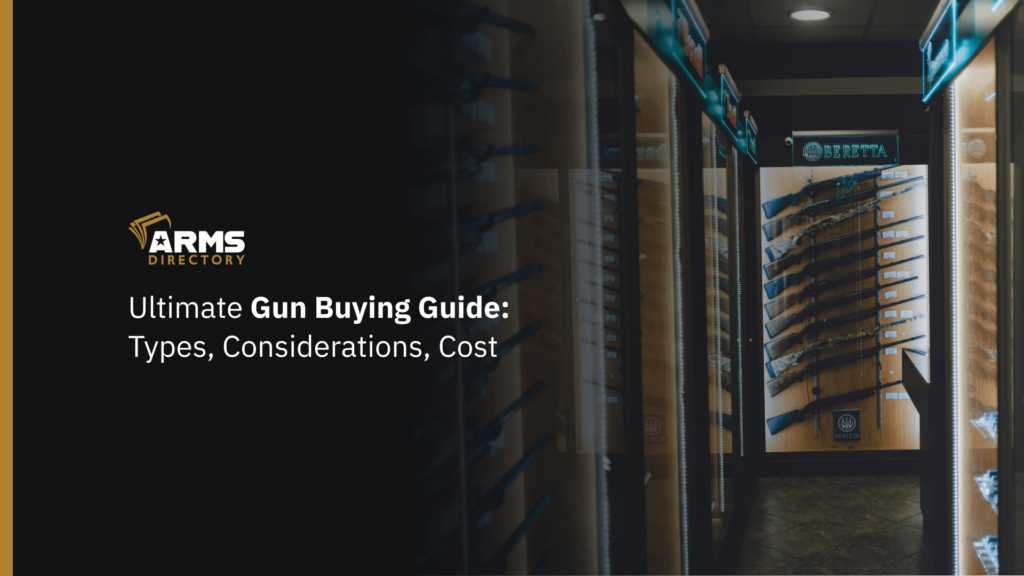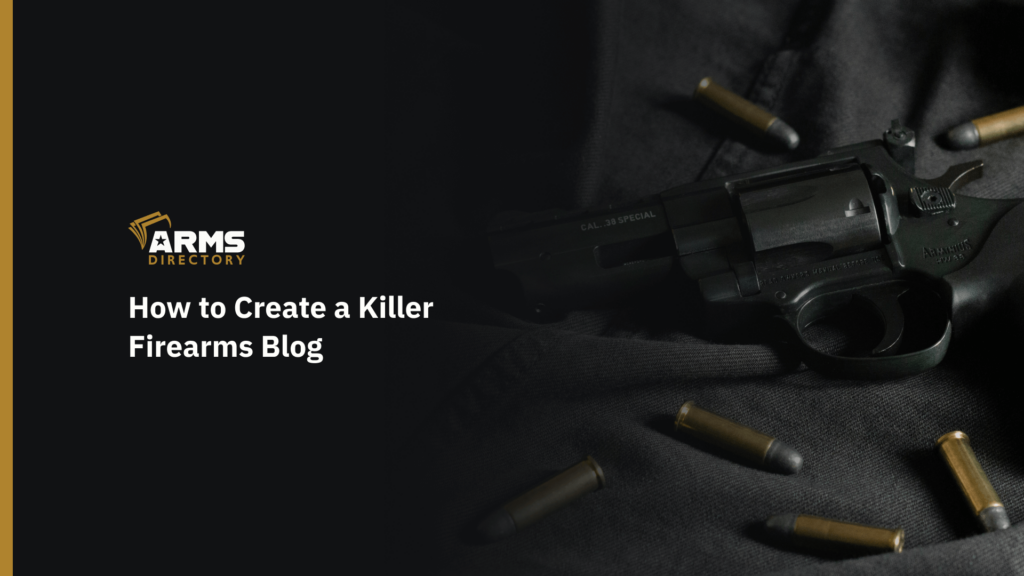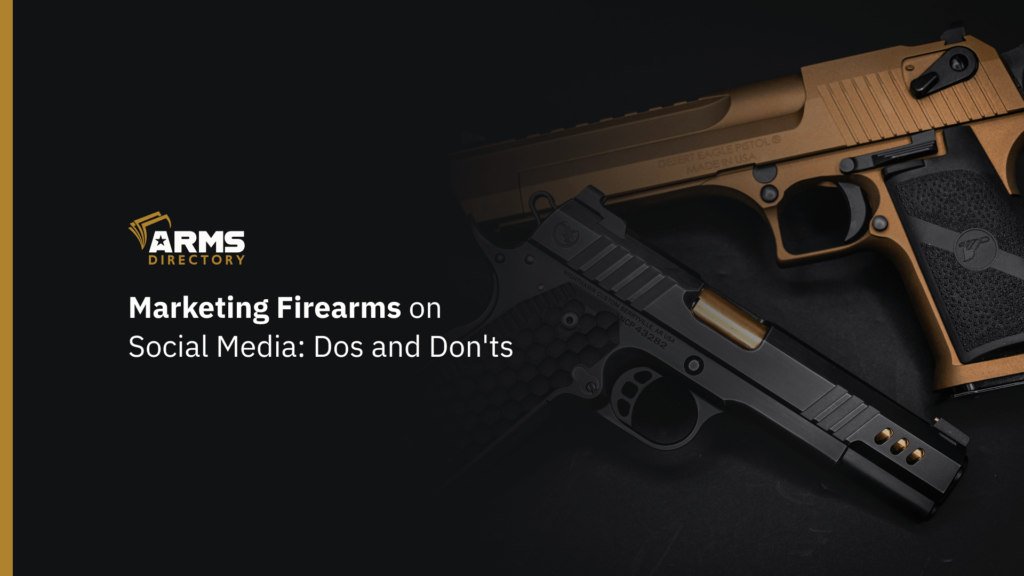
How to Run a Successful Gun Store: Pro Tips
You love firearms, and you want to turn this passion into a living, so you have decided to open a gun store. Congratulations!
Now, though, you are faced with a lot of challenging tasks and considerations. Opening a gun store is not so easy – there are regulations and laws you need to abide by, not to mention trying to make it profitable.
Follow along and find out exactly how to run a successful gun store.
Related Post : Outrageous Gun Myths That Really Need To Die – Arms Directory
How to Run a Successful Gun Store: 8 Pro Tips
- Get to Know the Laws
- Acquire an FFL
- Establish a Business Plan
- Find the Best Location
- Identify Your Target Customers
- Stock Up on Firearms
- Employ Qualified Staff
- Promote Your Gun Store
1. Get to Know the Laws
Naturally, the very first step of your gun store owner journey is to familiarize yourself with the laws. Make sure you are well aware of regulations governing the sale and purchase of guns, and the storage, and transportation of firearms.
Don’t forget also to check local and state laws and regulations, as they might differ. For example, California, New York, Connecticut, Hawaii, Illinois, Maryland, Massachusetts, and New Jersey have the strictest gun laws in the US.
On the other hand, states like Kansas, Kentucky, and Idaho have much looser gun laws, which will make your life as a gun shop owner a lot easier, at least in terms of regulations you need to follow.
Related Post : Gun Registration Requirements by State [What You Need to Know] – Arms Directory
2. Acquire an FFL
Obtaining an FFL (Federal Firearms License) is mandatory when opening a gun store. You will also need to acquire a state license – the first one allows you to sell firearms, while the latter is for selling ammunition.
Keep in mind that the process can be long and complicated, so make sure you have prepared everything you need, and are familiar with the requirements before you apply.
Related Post : Essential Listening: Best Gun Podcasts to Follow in 2024 – Arms Directory
3. Establish a Business Plan
Initially, you should at least have a general idea regarding your shop. Do you know what you want to sell or what it looks like? Have you established a few goals and objectives you want to achieve?
Additionally, you should plan out your finances, so you have an idea how much money you will need to start, as well as, the profit you can expect to make within the next few months.
Related Post : Complete Guide to SEO For Guns[Beginner-Friendly] – Arms Directory
4. Find the Best Location
The location you choose for your physical store is not without significance. Ideally, you want to select a place that is both easily accessible to customers and positioned in a secure and safe area.
Also, you want to ensure that there will be enough space to display all your products properly.
Related Post : The Right Way to Buy and Sell Firearms Online [Guide] – Arms Directory
5. Identify Your Target Customers
Of course, every business owner dreams that everyone wants to buy their products, however, that is most likely not going to happen. Instead, it is much better, and more realistic, to identify who your target customers will be.
In the firearms industry, your main types of clients are most likely hunters, sports shooters, and self-defense weapon buyers. Each of them will also have their own challenges.
For instance, hunters are regarded as very loyal customers, but are harder to attract, while the self-defense weapon market is highly competitive, yet has more customers.
Related Post : Shadows Bans Hurting 2A Business: Finding 2A Friendly Solutions – Arms Directory
6. Stock Up on Firearms
Identifying your target clients doesn’t mean you shouldn’t offer variety in your store. On the contrary, you want to make sure you have a variety of guns in your arsenal, suitable for everyone who enters your shop. Think about handguns, rifles, shotguns and assault rifles.
Also, you want to have a variety of ammo and shooting accessories available, so customers can find what they are looking for.
Related Post : How Many Guns Does The Average American Own [2023 Edition] – Arms Directory
7. Employ Qualified Staff
Hiring knowledgeable and qualified staff to run your gun store is vital. Your staff could make or break the entire customer experience, and the last thing you want to do is to employ personnel that would repel clients.
On the other hand, staff that knows the laws and regulations, provide personal recommendations, and are familiar with the guns you sell can provide outstanding customer service.
Related Post : Open Carry vs Concealed Carry: Weighing the Pros, Cons, and Legalities – Arms Directory
8. Promote Your Gun Store
You can’t expect people to automatically know about your firearms business, whether it’s brand new, or open for some time.
Be it on social media, online ads, or traditional marketing strategies like print advertising and handouts, it is very important to actively promote your gun store.
Related Post : Ultimate Guide to Gun Marketing, and Selling Guns – Arms Directory
Are Gun Stores Profitable?
A lot of you are probably wondering if running a gun store is actually a profitable business. In fact, it can be profitable if it is well-managed and professionally operated. Of course, the amount it makes depends on the size, location, and inventory of the shop, among other factors. Still, a mid-size gun store can potentially take in several hundred thousand dollars every year, while a large store in a populated area can reach multiple millions in yearly revenue.
Here are a few tips you can use to maximize your gun store profit:
- Use specialized software to optimize operations.
- Apply competitive pricing strategies.
- Have a wide variety of firearms and accessories.
- Develop a great online presence.
- Add a diverse range of services (repairs, firearms training, etc.)
Related Post : What to Look for Before You Buy Guns Online: 6 Tips to Get Prepped – Arms Directory
How to Open a Gun Shop: What Are the Risks?
By now you’re surely aware that selling firearms has many obstacles and risks, such as the following.
- High initial investment . Stocking your store with guns is expensive, but that’s not everything, you also need to think about other initial costs like license fees, rent or a mortgage, and insurance.
- Legal liability . It is important to keep in mind that if a firearm you sold at your store is used for criminal activity, you could be held legally responsible. This is why it is crucial to maintain a detailed record of all sales and customer information.
- Brutal competition . The firearms industry is very unforgiving. Be prepared to face huge competition, from other gun stores, licensed dealers, gun shows, and online sellers. To survive, you must research the market, and analyze what your competitors are doing in terms of pricing, gun selection, and customer service.
Related Post : From Curtain Rods to Firearms: The History of Glock – Arms Directory
Over to You
Turning your passions into a business is a great endeavor, and we’d love to see you succeed. We hope you’ve found our tips on how to run a successful gun store useful.
Remember that we are always here for you – and by claiming your business on our platform, you can increase your visibility, boost your reputation, and connect with customers.
Don’t hesitate to join more than 72,000 other firearms businesses who have already taken the leap and appear on the #1 firearms platform.
![The Ultimate Shooting Accessories for Every Weapon [A 2023 Beginners Guide]](https://vault.armsdirectory.com/wp-content/uploads/2023/08/30071223/The-Ultimate-Shooting-Accessories-for-Every-Weapon-A-2023-Beginners-Guide-1024x576.png)
![Gun Registration Requirements by State [What You Need to Know]](https://vault.armsdirectory.com/wp-content/uploads/2023/10/27073220/Gun-Registration-Requirements-by-State-What-You-Need-to-Know-1024x576.png)


